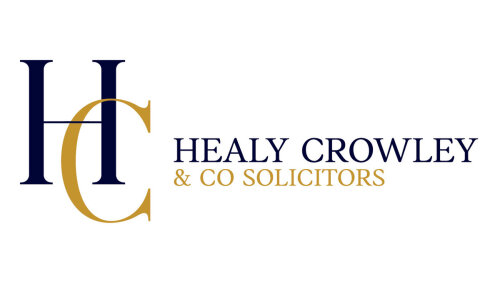Best Banking & Finance Lawyers in Ireland
Share your needs with us, get contacted by law firms.
Free. Takes 2 min.
Or refine your search by selecting a city:
List of the best lawyers in Ireland
About Banking & Finance Law in Ireland
Banking and Finance Law in Ireland is a complex body of legal statutes, regulations, and case law that governs the operations of financial processes and institutions within the country. It encompasses areas such as lending, borrowing, compliance with financial regulation, securities, mergers, acquisitions, and managing financial risks. Ireland, known for its robust financial services sector, provides a stable and transparent legal environment, supported by a strong regulatory framework and membership in international organizations like the European Union.
Why You May Need a Lawyer
There are numerous situations where seeking legal advice in Banking & Finance might be necessary:
- Engaging in complex financial transactions, such as securing large borrowings or investments.
- Navigating bank regulations and compliance issues, including anti-money laundering (AML) laws.
- Disputes involving loan agreements, overdrafts, or credit lines.
- Bankruptcy proceedings or financial restructuring of businesses.
- Pursuing financing through mergers and acquisitions.
- Managing corporate governance and fiduciary duties within financial entities.
- Handling disputes over electronic banking or online financial services.
- Addressing regulatory actions from financial oversight bodies.
Local Laws Overview
Key aspects of Irish Banking & Finance laws include:
- Central Bank of Ireland: The primary regulatory authority that oversees all financial institutions, ensuring they adhere to statutory norms and regulatory requirements.
- European Union Regulations: As an EU member, Ireland adheres to regulations such as MiFID II, AMLD, and GDPR that impact banking and finance operations.
- Consumer Protection Code: Enforced by the Central Bank, this provides rules for fair treatment of consumers in financial dealings.
- Credit Reporting Act 2013: Governs how personal and credit information is reported and used.
- Securities Markets Regulation: Laws that ensure transparent and fair operations within Ireland's financial securities markets.
Frequently Asked Questions
What is the role of the Central Bank of Ireland in financial regulation?
The Central Bank of Ireland is responsible for financial services regulation and consumer protection, ensuring the financial well-being and stability of the country's financial system.
How do European regulations affect banking in Ireland?
As a member of the EU, Ireland must comply with frameworks like MiFID II, GDPR, and the AML Directive, which standardize financial operations and enhance consumer protection across the European Union.
What are some common banking disputes in Ireland?
Disputes may involve loan agreements, credit facilities, unauthorized transactions, compliance failures, and breaches of financial duties.
What are the legal requirements for setting up a bank in Ireland?
Setting up a bank necessitates authorization from the Central Bank of Ireland, which involves meeting specific capital requirements and adherence to regulatory standards.
How can one protect their data with Irish financial services?
Consumers should ensure financial institutions comply with GDPR, which mandates stringent data protection measures.
What should I do if my bank is non-compliant with regulations?
Complaints can be directed to the Central Bank of Ireland or the Financial Services and Pensions Ombudsman. Legal advice may also be sought.
Are online banking services regulated differently?
Online banking falls under the same regulatory frameworks, but additional regulations such as the e-Commerce Directive may apply.
Can I get a loan from a foreign bank while residing in Ireland?
Yes, individuals can secure loans from foreign institutions, but these must comply with both Irish and EU regulations regarding cross-border transactions.
What is the importance of compliance in banking and finance?
Compliance ensures that financial operations are conducted within legal boundaries, safeguarding consumer interests and maintaining systemic stability.
How do I address grievances with financial service providers?
Issues should be addressed initially with the provider’s complaint resolution mechanisms. If unresolved, escalate to the Financial Services and Pensions Ombudsman.
Additional Resources
Here are some resources that can provide further assistance:
- Central Bank of Ireland: Central regulatory body for banking and finance.
- Financial Services and Pensions Ombudsman (FSPO): For resolving financial disputes.
- Irish Banking Culture Board: Offers insights into ethical banking practices.
- Department of Finance Ireland: Provides policy updates and economic reports.
- Legal Aid Board: Assists in understanding legal rights and accessing representation.
Next Steps
If you require legal assistance in Banking & Finance in Ireland:
- Identify specific issues or questions you have regarding your financial matters.
- Gather all necessary documentation related to your case or query.
- Contact a specialized Banking & Finance lawyer or a law firm with expertise in this field.
- Consider consulting with industry bodies or consumer protection agencies for guidance.
- Prepare for initial consultations by listing questions and desired outcomes to discuss with your lawyer.
Lawzana helps you find the best lawyers and law firms in Ireland through a curated and pre-screened list of qualified legal professionals. Our platform offers rankings and detailed profiles of attorneys and law firms, allowing you to compare based on practice areas, including Banking & Finance, experience, and client feedback.
Each profile includes a description of the firm's areas of practice, client reviews, team members and partners, year of establishment, spoken languages, office locations, contact information, social media presence, and any published articles or resources. Most firms on our platform speak English and are experienced in both local and international legal matters.
Get a quote from top-rated law firms in Ireland — quickly, securely, and without unnecessary hassle.
Disclaimer:
The information provided on this page is for general informational purposes only and does not constitute legal advice. While we strive to ensure the accuracy and relevance of the content, legal information may change over time, and interpretations of the law can vary. You should always consult with a qualified legal professional for advice specific to your situation.
We disclaim all liability for actions taken or not taken based on the content of this page. If you believe any information is incorrect or outdated, please contact us, and we will review and update it where appropriate.
Browse banking & finance law firms by service in Ireland
Ireland Attorneys in related practice areas.
Browse banking & finance law firms by city in Ireland
Refine your search by selecting a city.















